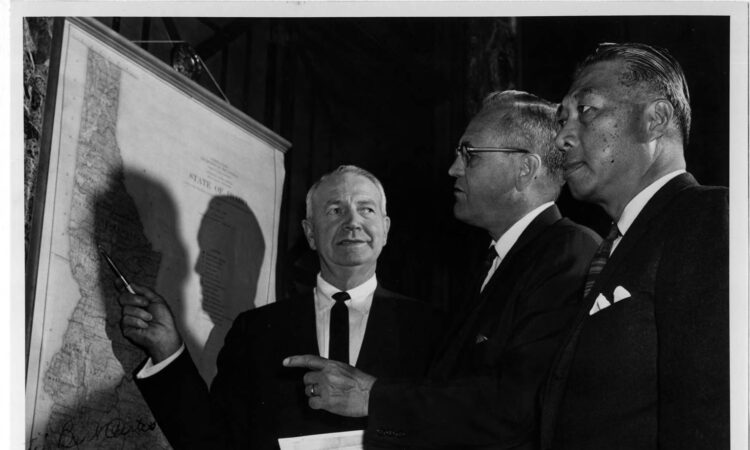
Former U.S. Sen. Len Jordan served Idaho with distinction from 1962 through 1972. He was a conservative Republican who brought courage and individualism to the Senate. He differed with Idaho’s other senator, Frank Church, on a number of issues, but they worked together in harmony on issues affecting Idaho. Both were dedicated to safeguarding democracy. They had a relationship of mutual trust and respect.
I worked for Jordan the summers of 1965 and 1966 and then served as his legislative assistant for his last three years in office. He was in the mainstream of a Republican Party that had members ranging from conservative to liberal. His Republican values were fashioned after those of the party founder, Abraham Lincoln.
Like Lincoln, Jordan stood up for the equality and dignity of all Americans. He supported the Civil Right Act of 1964 to require equal rights in employment, education and public accommodations. He supported the Voting Rights Act of 1965 to prohibit racial discrimination in voting. We now see so-called Republicans in red states trying to chip away at these protections.
Sen. Jordan was a leader, not a follower. When President Richard Nixon nominated Clement Haynsworth and Harrold Carswell to the U.S. Supreme Court, Jordan voted against both because of their poor civil rights records. Most current GOP senators would vote for any living and breathing human nominated by their party’s president.
Jordan voted for the Immigration and Nationality Act of 1972, which removed immigration barriers to a wide range of people across the world. Until recent years, the GOP recognized that America grew great and powerful by welcoming immigrants.
Recognizing that guns were becoming a danger in many areas of the country, Jordan supported the Gun Control Act of 1968 and voted in 1972 to ban cheap, dangerous handguns called “Saturday Night Specials.” He told me we did not need gun controls in Idaho but that the legislation was necessary in other parts of the country.
Jordan was not a fan of excessive taxation. He told me Congress needed to decide what services the government should provide and then provide the money to pay for them. He believed in a balanced budget and that voting for necessary tax increases was an essential part of achieving balance. Jordan pointed out that America became the most prosperous nation on the planet after World War II, despite a graduated income tax placing hefty tax rates on the rich. We all know about GOP pledges nowadays to never vote for a tax increase for any purpose.
That brings us to the current fight over increasing the debt limit. Presidents of both parties have contributed about equally to our national debt. Trump added over $8 trillion to the national debt during his four years. Republicans always accommodate their presidents by gladly increasing the debt limit to allow additional borrowing to cover deficits. When Democratic presidents request an increase in the limit, the GOP has threatened to let the country default on its debt.
I first learned of the debt limit when President Nixon asked Congress to increase the Treasury’s borrowing authority from $377 billion to $395 billion in June of 1970. When I told Jordan we were getting lots of mail from home opposing the increase, he said in no uncertain terms that he would vote for it. He said the country had no alternative – the debt had already been incurred and we had to pay the bills. The only way to do that was to borrow the money by issuing government securities. Jordan said those who opposed increasing the debt limit were just posturing and should know better.
Jordan would be horrified to see what passes as the official Idaho Republican Party today. The extremists have commandeered the party, but there are still many reasonable Republicans who hope to remake the party to reflect Jordan’s traditional values. Getting rid of the closed GOP primary would accomplish that.
GET THE MORNING HEADLINES DELIVERED TO YOUR INBOX






